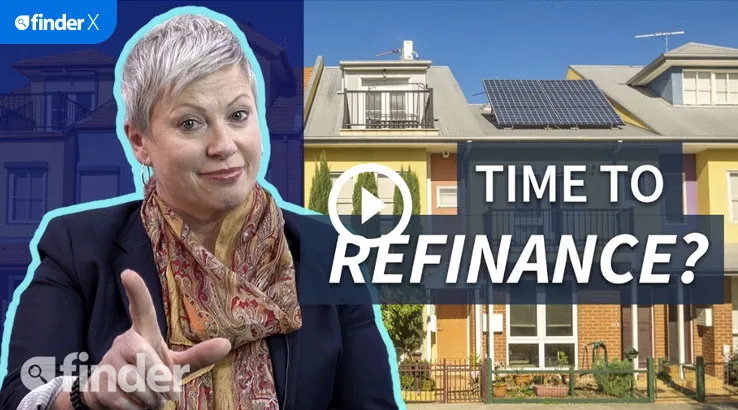Is now a good time to refinance?


Consumer finance expert Lisa Montgomery explains just how much you can save by switching home loans when rates are this low.
These days we lead such busy lives that reviewing our home loan rate is probably at the bottom of the list. It's that task we always intend to tackle, but never quite get to.
Yet interest rates are currently at record low levels. This means that for homeowners, there are hundreds of thousands of dollars to be saved across the board – provided they act now.
Earlier in July, the RBA lowered the cash rate for the second time in two months, dropping it to just 1.0%. Let's consider the effect of this on an average Australian mortgage of $400,000.
As of 3 June, the average variable rate was 4.91%. For a loan of $400,000, monthly repayments would be $2,125 per month. Over a 30-year period, the total cost of your loan would come to $765,122.
But if your lender were to pass on the full rate cut – which many have – your interest rate could drop down to 4.41%. This would see your monthly repayments reduced to $2,005, saving you $120 per month.
With opportunity for rates to decrease even further in the future, now is absolutely the time to think about refinancing if you're not satisfied with what your current lender has to offer.
So where should you begin?
You should always speak to your lender before jumping ship. You may be able to negotiate a lower rate, and this can be applied immediately with minimal fuss. But make sure you've done your research first – you need to know what to ask for. If your current lender won't match the offer you make, it's time to look elsewhere.
Keep in mind that a lower rate isn't the only thing you should be looking at when making the switch. Loan features like a redraw facility, 100% offset and portability should all be considered too. You want to make sure your new lender also has a history of decreasing rates in full when the RBA cuts the official cash rate, especially with further cuts looming.
Once you've secured a lower interest rate, the trick to really maximising your savings is to keep your repayments at the higher amount – that is, the loan repayment you were paying prior to the reduction. Even if you're only shaving 1-2% off your rate, you'll be amazed by the reduction in interest this will give you over the life of the loan.
To go back to the earlier example, if that same homeowner with a loan of $400,000 were to put that extra $120 per month towards their mortgage, they would save $40,300 in interest over the life of their loan and reduce their loan term by 3 years and 3 months overall.
Borrowers should therefore think of rate reductions as a two-pronged attack. Either negotiate a lower rate with your current lender but keep your repayments the same, or refinance to a lower rate and continue to keep your repayments at the higher amount.
You'd never take a handful of money out of your pocket and set it alight with a match, but that's what you're doing if you don't seek out a better rate for yourself.
Lisa Montgomery is one of Australia's most respected consumer finance experts and commentators. She is the former CEO of Resi Home Loans and Head of Consumer Advocacy at Wizard Home Loans.
Disclaimer: The views and opinions expressed in this article (which may be subject to change without notice) are solely those of the author and do not necessarily reflect those of Finder and its employees. The information contained in this article is not intended to be and does not constitute financial advice, investment advice, trading advice or any other advice or recommendation of any sort. Neither the author nor Finder has taken into account your personal circumstances. You should seek professional advice before making any further decisions based on this information.
Read more Finder X columns
-
Australian credit card debt soars 10% in a year: How can you escape the trap?
6 Feb 2026 |
-
4 cashback home loan offers to ease the pain of RBA rate hike
4 Feb 2026 |
-
Finder’s RBA Survey: Easing cycle ends as RBA delivers first rate hike since 2023
4 Feb 2026 |
-
Ubank Save is increasing its bonus rate up to 5.35% p.a.
3 Feb 2026 |
-
Top savings account rates after the RBA’s cash rate increase
3 Feb 2026 |
Image credit: Getty Images
Ask a question

